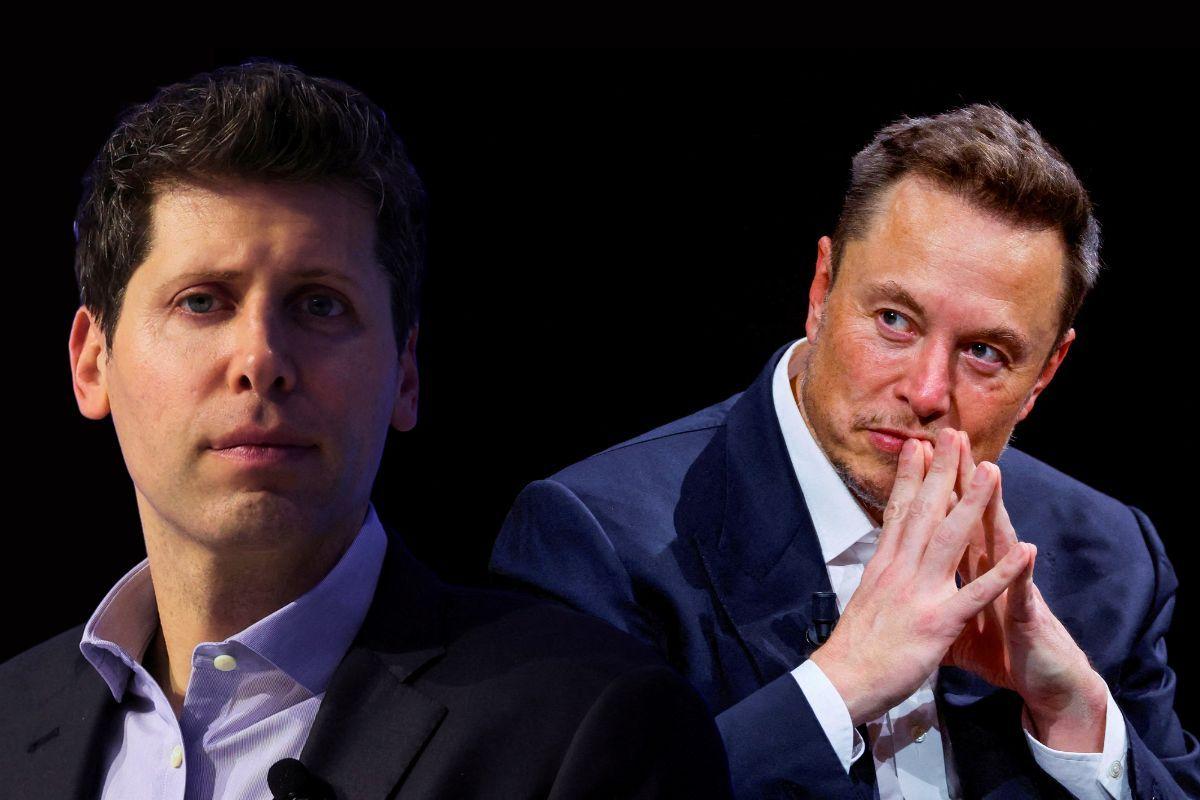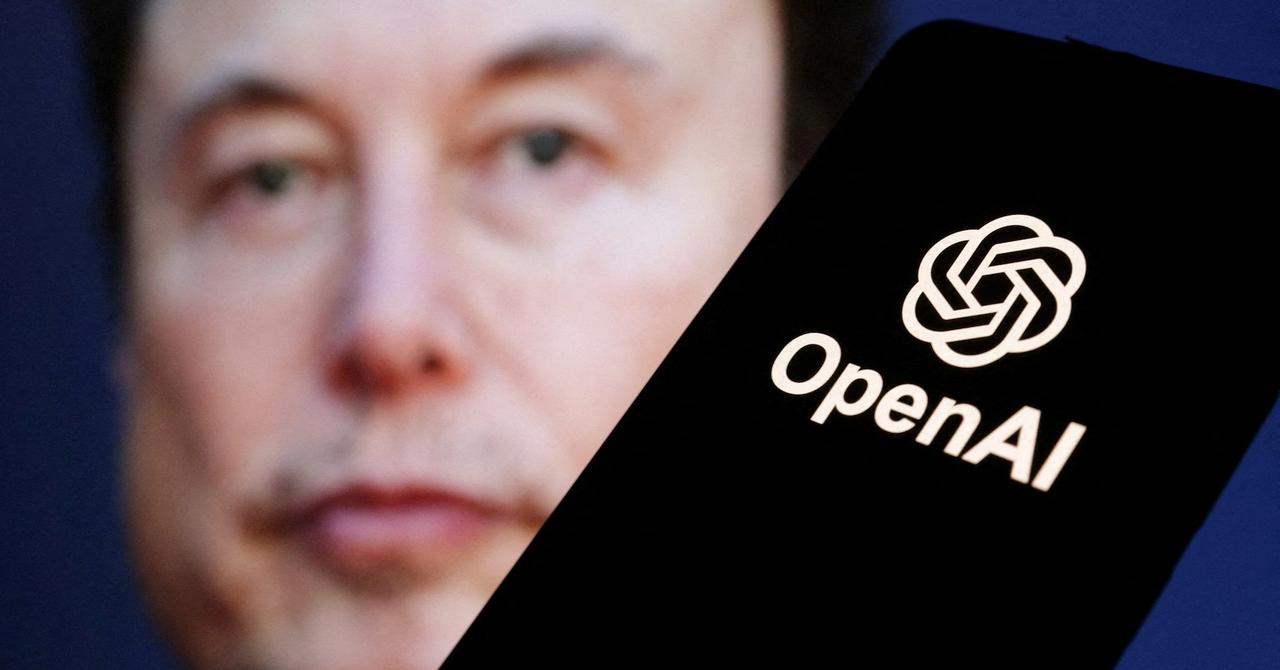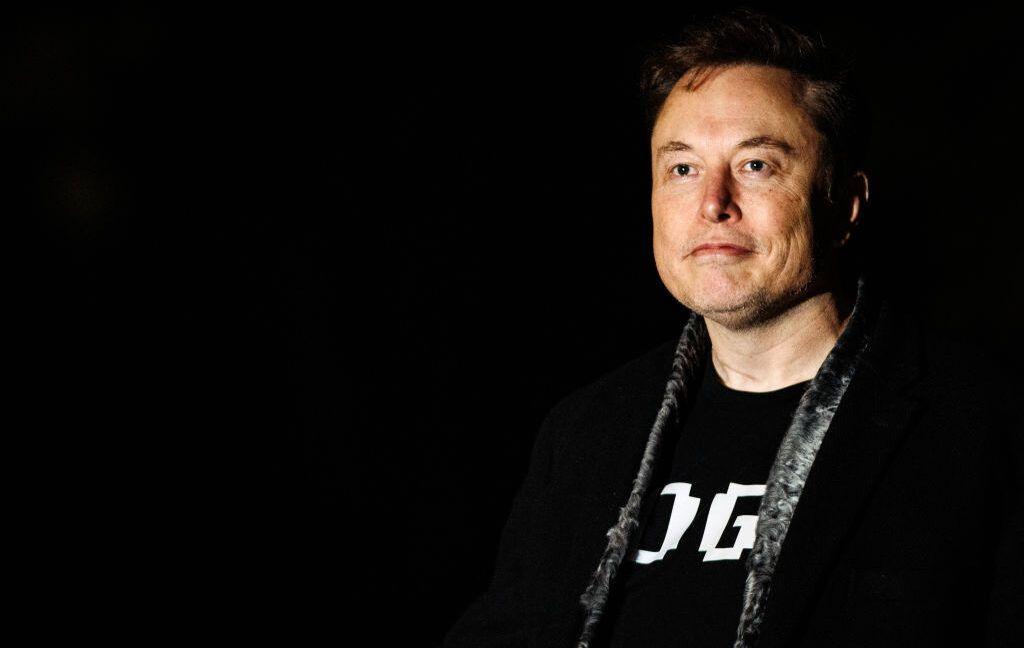OpenAI Seeks Dismissal of Elon Musk's Lawsuit, Calling it a 'Harassment Campaign'
2 Sources
2 Sources
[1]
OpenAI Asks Judge to Dismiss Elon Musk Lawsuit as 'Blusterous' Harassment Campaign - Decrypt
ChatGPT developer OpenAI is asking a federal judge to throw out a lawsuit by tech billionaire Elon Musk mainly on grounds that it's harassment. Musk, an OpenAI co-founder, has brought a number of lawsuits against the company since March, ranging from fraud to violation of the RICO Act, as a part of the ongoing feud between himself and OpenAI CEO Sam Altman. Musk subsequently launched his own AI platform, Grok, on X. The motion filed Tuesday by OpenAI in Oakland, California, in the U.S. District Court for the Northern District of California, argues that Musk's claims lack sufficient legal basis and amount to harassment. "This suit is the latest move in Elon Musk's increasingly blusterous campaign to harass OpenAI for his own competitive advantage," it said. Musk co-founded OpenAI in December 2015 with Altman, Ilya Sutskever, Greg Brockman, Trevor Blackwell, Vicki Cheung, Andrej Karpathy, Durk Kingma, John Schulman, Pamela Vagata, and Wojciech Zaremba. He left the company in 2018. Musk's lawsuit alleges breaches of contract, fraud, and violations of the Racketeer Influenced and Corrupt Organizations Act (RICO). RICO violations include fraud, bribery, extortion, or money laundering as part of an ongoing criminal enterprise. OpenAI denied these allegations, saying that Musk has not provided any proof to support the claim. "Musk's RICO claims, predicated on supposed acts of wire fraud, bear the same defects and also rest on the implausible premise -- supported by zero facts pleaded -- that Altman, OpenAI President Greg Brockman, and various entities within and outside the OpenAI organization infiltrated and corrupted OpenAI, Inc. as the mob might a business," the motion to dismiss said. Musk's lawsuit also claimed that a "Founding Agreement" promised that OpenAI would be open-source technology and pursue non-commercial aims. OpenAI's lawyers, however, challenged Musk's standing to bring claims related to fiduciary duty and false advertising, stating that he had no legal standing to make those assertions. "Under California law, only an officer or director of the non-profit to which duties are owed, or a party 'with a reversionary, contractual, or property interest in' the entity's assets, or the Attorney General (or a relator) has standing to sue the non-profit for fiduciary breach," the motion said. The motion also derided Musk's claims of fraud as "puffed-up versions of his untenable contract claims." The filing said: "Musk cannot clearly identify any promises made to him that were then broken, much less any facts supporting his spurious accusation of intent to defraud." In March, Musk sued OpenAI, and Altman in the California Superior Court in San Francisco on claims of abandoning the company's original mission to develop AI for the "benefit of humanity, not profit" and prioritizing Microsoft's commercial interest over the public good. He dropped the lawsuit in June, presumably to reconsider the legal strategy and file a new complaint, which he did in August. That new complaint claimed that OpenIA misled Musk into financing an organization that would later become a for-profit company. Attorneys for Musk did not immediately respond to requests for comment by Decrypt.
[2]
OpenAI accuses Elon Musk of harassment in legal filing
On Oct. 8, OpenAI filed a motion to dismiss Elon Musk's lawsuit against it. The artificial intelligence firm says Musk is using the court system to "harass" it amid a bid to bolster the fortunes of his own competing company, xAI. Musk filed suit against OpenAI in February, alleging that the company had strayed from its "not-for-profit" roots. At the time, questions surrounding OpenAI's potential pivot to a "for profit" model, as described in the lawsuit, spurred conversations throughout the AI community about the legality of OpenAI's business model. However, Musk rescinded that suit in June before filing a separate lawsuit in August. Musk sues Altman, OpenAI In the August suit, Musk's legal team alleged that OpenAI and its CEO, Sam Altman, "intentionally courted and deceived Musk, preying on Musk's humanitarian concern about the existential dangers posed by artificial intelligence" and "assiduously manipulated Musk into co-founding their spurious non-profit venture, OpenAI, Inc." According to the Oct. 9 filing from OpenAI, the company is asking the judge presiding over the suit to dismiss the case outright. The firm's legal team alleges that Musk is using the legal system to harass the company and that the billionaire's claims have no legal merit. Related: X to be restored in Brazil in 24 hours, rules Justice Alexandre de Moraes OpenAI seeks dismissal Per OpenAI's legal team, the suit is "the latest move in Elon Musk's increasingly blusterous campaign to harass OpenAI for his own competitive advantage." The filing also asserts that "Musk once supported OpenAI" in its mission, "but abandoned the venture when his bid to dominate it failed." OpenAI also alleges, in the document, that Musk is using the legal system to help his own company compete: "Since launching a competing artificial intelligence company, xAI, Musk has been trying to leverage the judicial system for an edge. The effort should fail; Musk's complaint does not state a claim and should be dismissed." The motion to dismiss indicates that a court date of Nov. 12, at the federal courthouse in Oakland, California, has been set for the civil suit.
Share
Share
Copy Link
OpenAI has filed a motion to dismiss Elon Musk's lawsuit, characterizing it as a harassment campaign aimed at gaining competitive advantage for Musk's own AI company.

OpenAI Files Motion to Dismiss Elon Musk's Lawsuit
In a significant development in the ongoing legal battle between OpenAI and its co-founder Elon Musk, the artificial intelligence company has filed a motion to dismiss Musk's lawsuit. The motion, submitted on October 8th in the U.S. District Court for the Northern District of California, Oakland, characterizes Musk's legal action as a "blusterous campaign to harass OpenAI for his own competitive advantage"
1
2
.Background of the Legal Dispute
The conflict stems from Musk's allegations that OpenAI has deviated from its original non-profit mission. Musk, who co-founded OpenAI in December 2015 alongside Sam Altman and others, left the company in 2018. Since March, he has initiated multiple lawsuits against OpenAI, ranging from fraud accusations to alleged violations of the Racketeer Influenced and Corrupt Organizations (RICO) Act
1
.OpenAI's Defense and Counterarguments
OpenAI's motion to dismiss presents several key arguments:
-
Lack of Legal Basis: The company contends that Musk's claims, including breaches of contract, fraud, and RICO violations, lack sufficient legal foundation
1
. -
Challenge to Musk's Standing: OpenAI's lawyers argue that Musk has no legal standing to bring claims related to fiduciary duty and false advertising
1
. -
Refutation of Fraud Claims: The motion describes Musk's fraud allegations as "puffed-up versions of his untenable contract claims"
1
. -
Competitive Motivation: OpenAI suggests that Musk's legal actions are driven by his desire to gain an edge for his own AI company, xAI
2
.
Musk's Allegations and Legal Strategy
Musk's lawsuit, filed in August, claims that OpenAI and CEO Sam Altman "intentionally courted and deceived Musk, preying on Musk's humanitarian concern about the existential dangers posed by artificial intelligence"
2
. This followed an earlier lawsuit in March, which Musk dropped in June, presumably to reconsider his legal strategy1
.Related Stories
Implications for the AI Industry
This legal battle highlights the tensions within the AI industry, particularly regarding the balance between non-profit ideals and commercial interests. It also underscores the competitive landscape in AI development, with Musk's xAI now competing against OpenAI
2
.Next Steps
A court date of November 12th has been set for the civil suit at the federal courthouse in Oakland, California
2
. As the AI community watches closely, the outcome of this legal dispute could have significant implications for the future of AI development and governance.References
Summarized by
Navi
[1]
[2]
Related Stories
Recent Highlights
1
ByteDance's Seedance 2.0 AI video generator triggers copyright infringement battle with Hollywood
Policy and Regulation

2
Demis Hassabis predicts AGI in 5-8 years, sees new golden era transforming medicine and science
Technology

3
Nvidia and Meta forge massive chip deal as computing power demands reshape AI infrastructure
Technology








